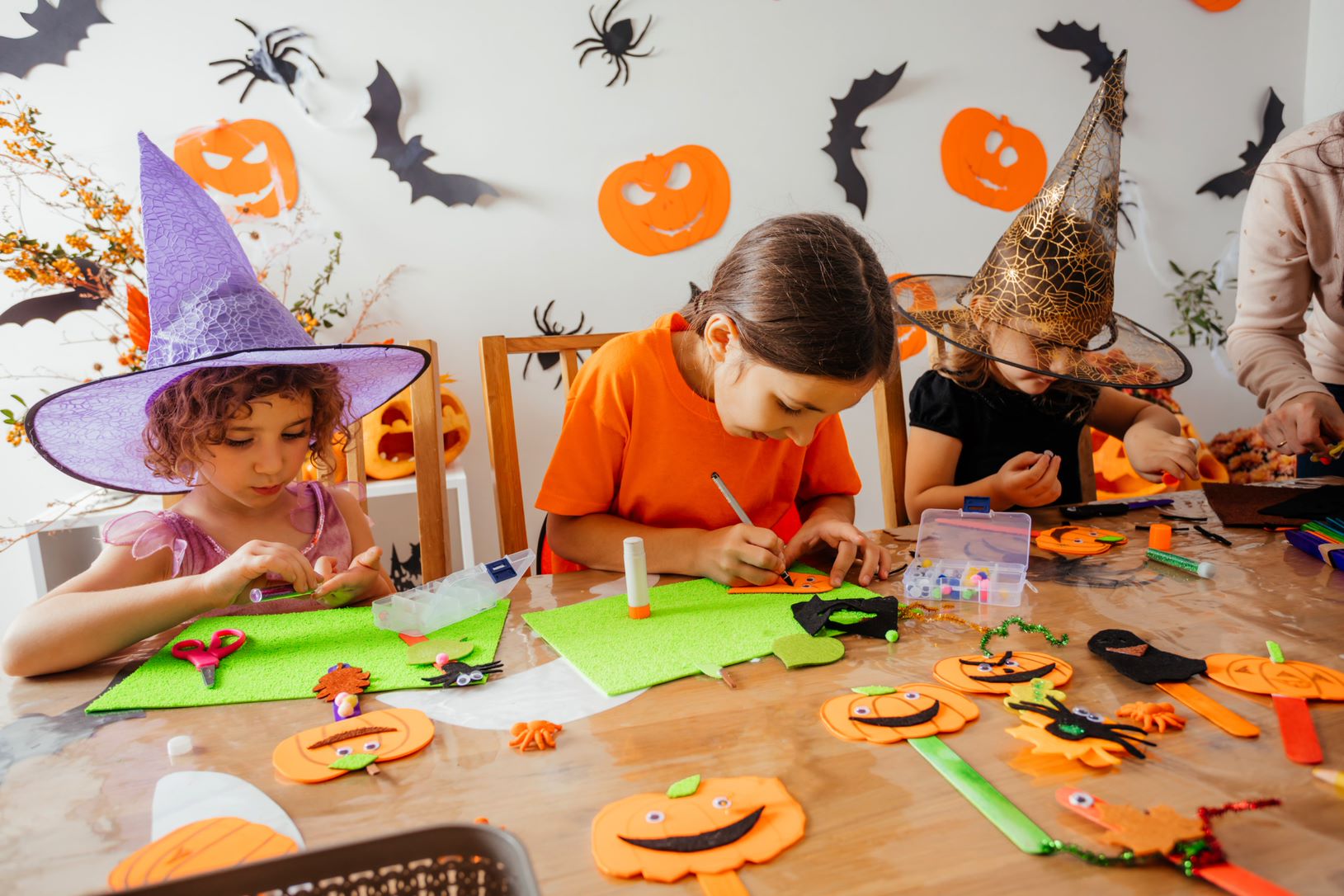Improving spelling skills Worksheets for Ages 3-7
6 filtered results
-
From - To
Enhance your child's spelling abilities with our engaging worksheets designed for ages 3-7! Our resource offers a variety of fun and interactive exercises that make learning to spell enjoyable. Each worksheet aims to build phonetic awareness, vocabulary, and reading skills through playful activities that captivate young learners. From letter recognition to simple word puzzles, our printable resources cater to different learning styles, fostering overall literacy development. Ideal for home or classroom use, these worksheets empower children to confidently improve their spelling skills while having fun. Download now and watch your little ones embark on their exciting spelling journey!
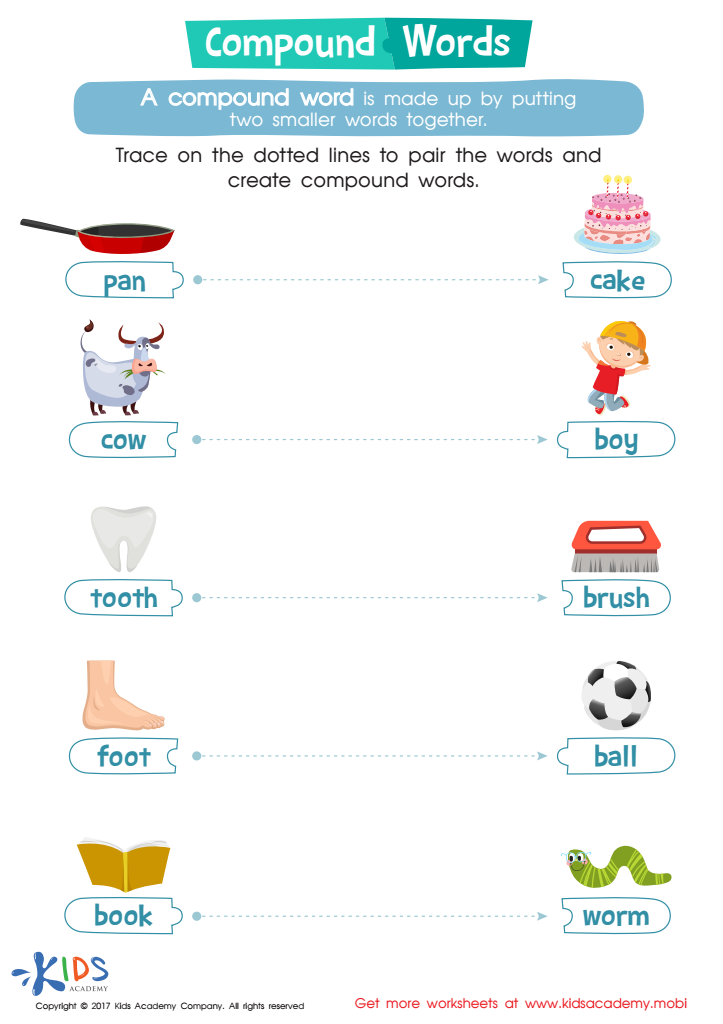

Compound Words Word Structure Worksheet
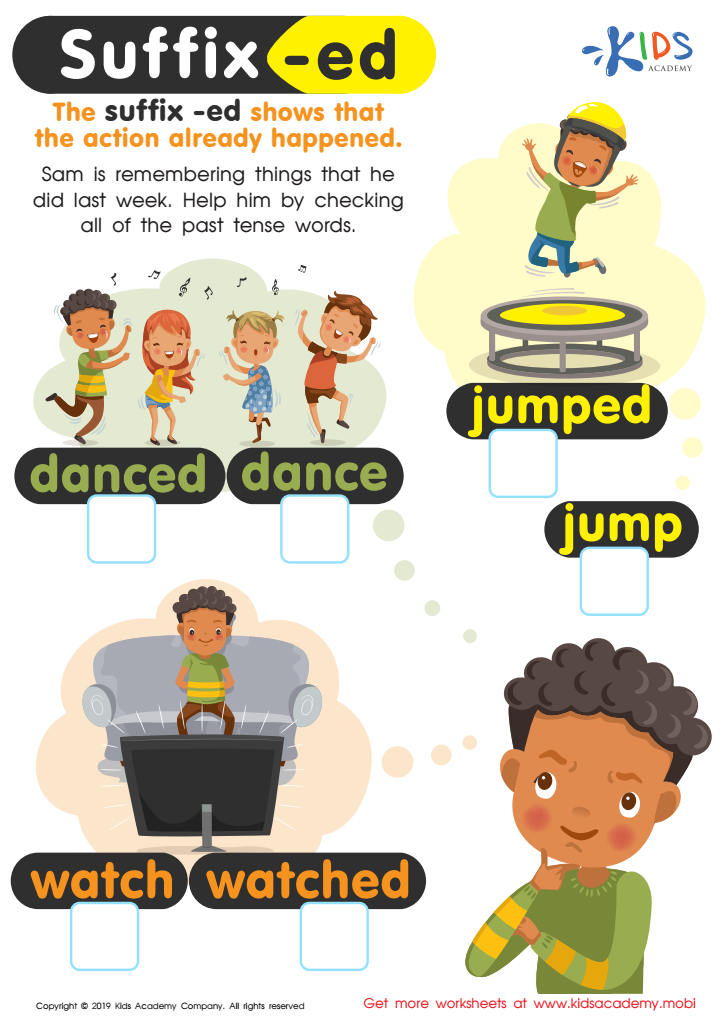

Suffix-ed Worksheet
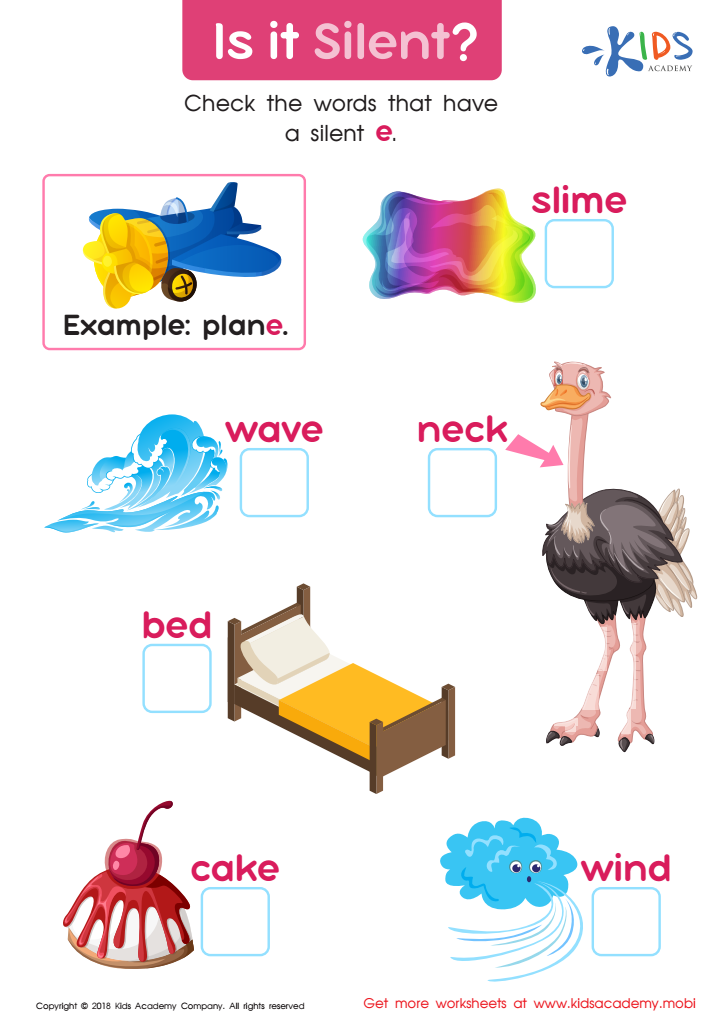

Is It Silent? Worksheet
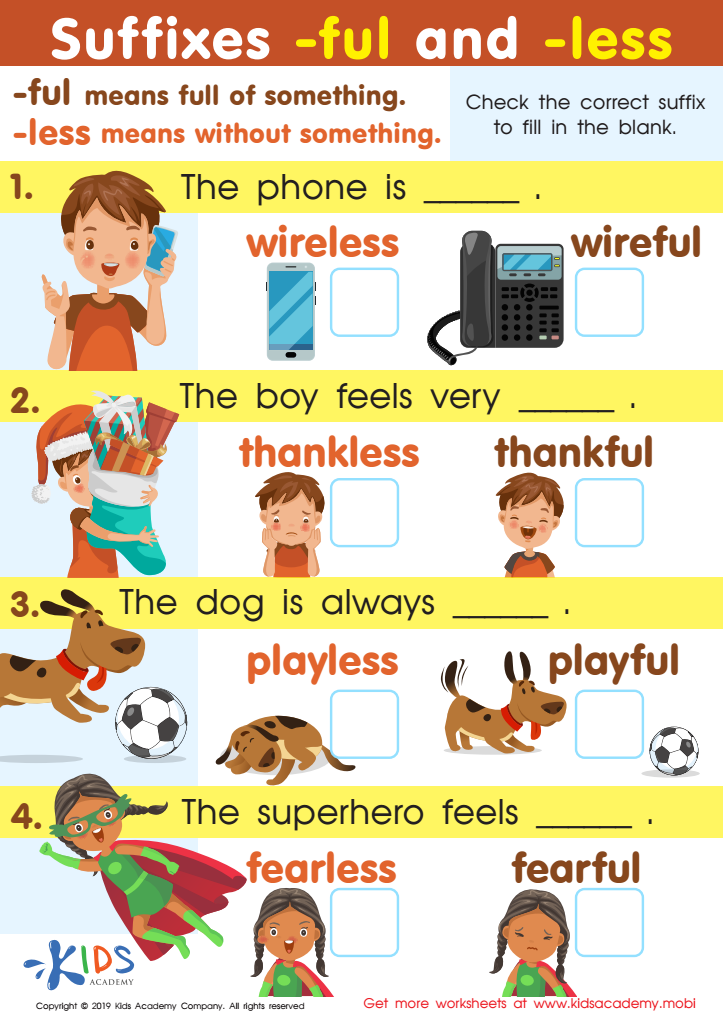

Suffixes –ful and –less Worksheet
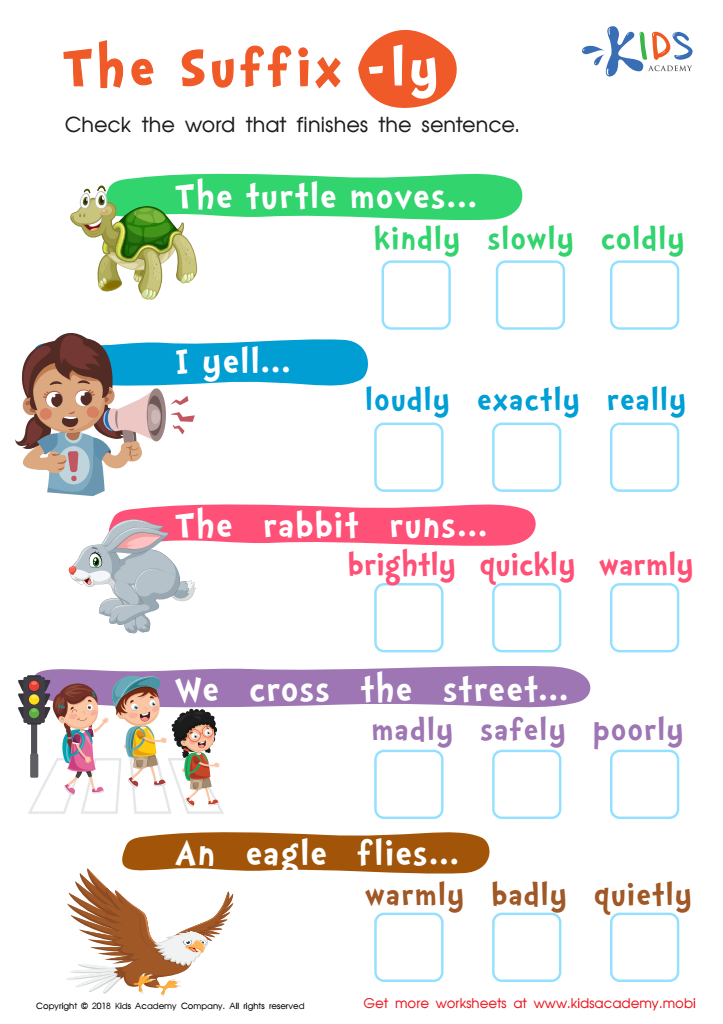

The Suffix -Ly Worksheet
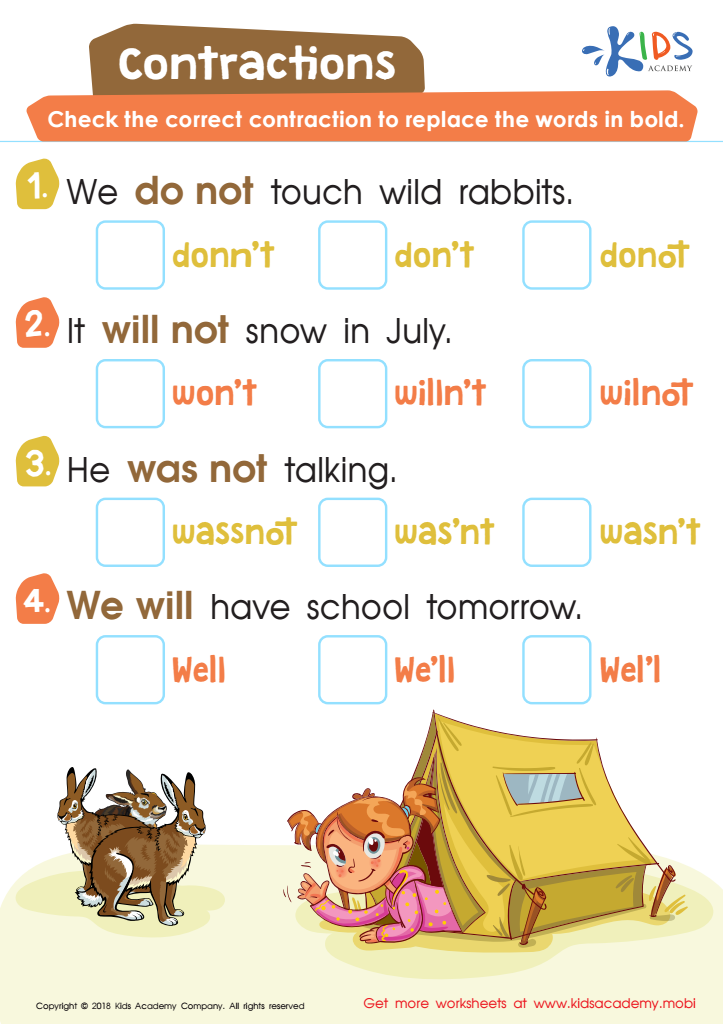

Contractions Worksheet
Improving spelling skills in children aged 3-7 is crucial for several reasons. First, early spelling proficiency contributes significantly to overall literacy development. Spelling is an essential component of reading, writing, and effective communication. When children learn to spell, they become more confident readers and writers, enabling them to express their thoughts and ideas clearly.
Additionally, strong spelling skills foster phonemic awareness—understanding the relationship between sounds and letters—which is foundational for learning to read. Mastering spelling early on helps children decode words more easily, setting the stage for future academic success.
Moreover, spelling impacts children’s self-esteem. Performing well in this area can motivate them to engage more deeply in learning activities and enhance their enthusiasm for language-related subjects. It instills a sense of accomplishment when they succeed in writing simple words.
Finally, a solid grasp of spelling is paramount for effective communication throughout a child’s educational journey and beyond. Providing early spelling support equips children with the necessary skills to thrive in school and develop a lifelong love for language. Therefore, investing time and resources into enhancing spelling capabilities for this age group is critical.
 Assign to My Students
Assign to My Students









